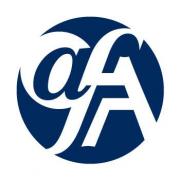September 1, 2023 deadline
General Expert Panel comments
Comments made by the panel during the assessment of applications are outlined below. Please note that these comments provide a summary of the panel's assessment and do not necessarily relate to every application submitted to this deadline. The panel does not provide individual comments.
Project description
- An unsuccessful grant request did not necessarily mean your project was without artistic merit. Not all strong projects could be supported. The panel encourages applicants to reapply in the future, and to reach out to AFA consultants for feedback prior to next submission.
- The panel read through many proposals and appreciated those where the applicants took the time to lay out their project description in sections and in a concise and precise manner.
- While the panel appreciated that some applicants may be trying to remain humble, the panel found it more helpful when artists were able to succinctly showcase or describe their accomplishments to date, including past projects, potential accolades, and the motivation behind why they create the type of work they do.
- The panel appreciated when applicants provided specifics about how they were going to complete their project, including the steps needed to complete their goals, with timelines.
- Applications were strengthened when applicants shared details of their cultural background, and/or included the names of those participating in their project, including Elders, knowledge-keepers, or other artists.
- In some cases, the panelists may not have been experts in the particular artistic discipline that the applicants were applying for, as the Indigenous Arts grant supports several artistic disciplines. They appreciated when applicants ensured enough information was given to help understand the art form, and what its impacts might be.
- The panelists appreciated when applicants explained how they planned to share their artwork among an audience, once their projects were completed.
- The panel prioritized projects which showed that Elders, knowledge holders, community and other artists would be adequately consulted and compensated for their work.
- The panel prioritized projects where a clear connection to Indigenous culture was made explicit. If the project itself was not cultural in nature, the panel appreciated when applicants described their own connection to Indigenous culture.
- For Career/Training development projects, the panel appreciated when applicants articulated what their future plans were to utilize the new skills they would develop.
- When projects involved travel, panelists appreciated specificity on which locations would be traveled to, why they were chosen, and the impacts that traveling to those locations would have on the project.
Budget
- The panel was more likely to prioritize applications where it was made clear that all artists would be compensated with industry standard rates or a living wage.
- The panel appreciated when budgets had enough detail to give the panel the information they need to evaluate the potential of a project. If the budget is too vague, it made it more difficult for the panel to gauge ability to do the project.
- The panel appreciated when details were provided for how applicants came to their calculations for each one of their expense line items. Providing quotes where possible was helpful (e.g., web screenshots, email confirmations, etc.).
- When more than one revenue stream was attached to a project, the panel appreciated when applicants made transparent which costs would be covered by the AFA grant.
- The panel appreciated when subsistence was broken out into the distinct eligible expense types (food, housing, childcare, dependent care and/or local transportation), as opposed to recording subsistence as one large expense.
- The panel appreciated when an applicant’s artist fees matched their demonstrated level of experience and achievements. They also appreciated when the overall budget matched the project scope as described in the project description. In some cases, budgets appeared to be overinflated in comparison to activities that were planned.
Support material
- For emerging artists, letters of support or identified mentors were especially important as they gave the panel confidence in the artists’ abilities to complete their projects.
- For emerging artists who may not have existing work to share, it was helpful to see drafts, plans, or vision boards for what they hope the final project would look like.
- For artists applying with a writing project, writing samples were important as they allowed the panel to assess ability.
- For writers using the support of a ghostwriter, it was helpful to have a writing sample provided by the ghostwriter in the voice of the applicant, showcasing their ability to collaborate together.
- It was appreciated when artists provided PDFs of their attachments versus using Microsoft Word, as then formatting is not lost.
